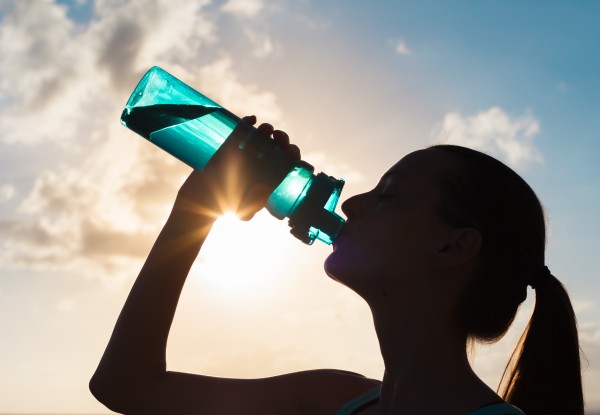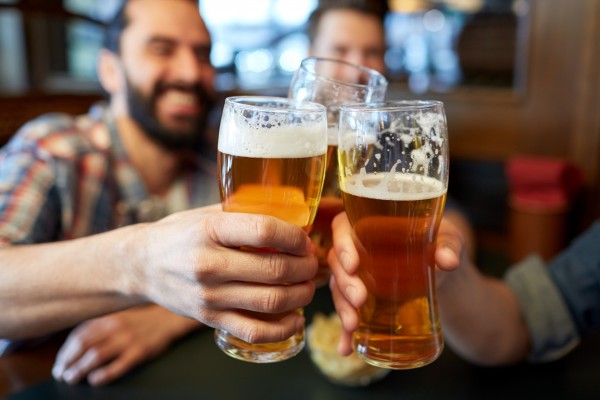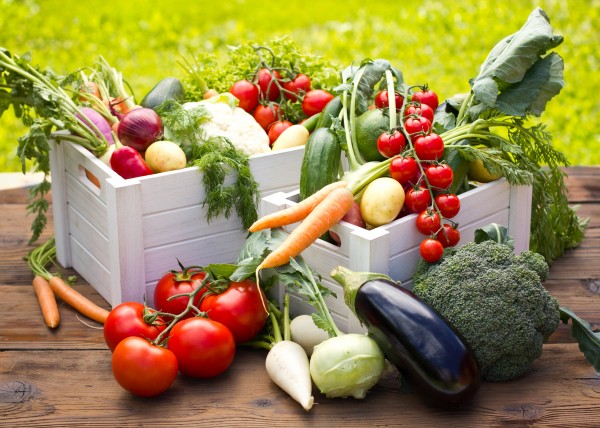What is Fit3D Body Fat %?
As the name suggests, Fit3d's Body Fat % is telling you what percentage of your total body is made up of fat. It is based on the simple equation: Your Total Fat Weight divided by your Total Body Weight.
Fat is an essential component of the body and is necessary to maintain life and reproductive functions; however, too much body fat can negatively affect overall health or hormone levels. It also serves as an indicator of more serious health problems that could potentially be faced in the future.
The essential body fat (fat that is required to maintain life functions) is generally 10-13% for women and 2-5% for men (referenced through NASM). Unless you are very sick, it is extremely rare that your body fat % level would be this low on a Fit3d Body Scan.
For perspective, at the time of writing (after having performed 10,000 Fit3d Body Scans), the lowest Body Fat %'s we have seen is 9.5% (Men) and 12.5% (Women).
5 ways to decrease your Body Fat % right NOW
1. Buy a water bottle and keep it on your desk at work
People who drink mostly water have been shown to drink 200 calories less (e.g. they consume less calories each day) per day, on average, than those who drink other beverages.
Not only is water calorie free, unlike wine, mochas, fizzy drinks, fruit juices, it may help you eat less. Your body struggles to determine the difference between requiring hydration or food. When you are dehydrated you may be eating more when all you really need is some water.
The convenience of keeping a bottle of water on your desk will make you more likely to drink it. It may even help decrease the amount of energy-heavy drinks you purchase.
You should also purchase a drink bottle for home and one for your car. The more places you have easy access to water, more more likely you are to drink it.

2. Start using smaller plates (and containers)
Studies have shown that you can decrease your overall food intake by 30% (30%!) by using smaller plates and bowls (and containers)
Portion sizes are a HUGE contributing factor to Body Fat and weight gain. Excess calories in your body are often automatically converted to fat. This may be a reason why there are still many overweight vegetarians out there - you can still have too much of the good stuff.
Click here for 7 tips to improve your portion sizes
3. Decrease your alcohol consumption
Calories from drinks add up.
There are approx. 120 calories in a standard glass of wine and 200 calories in a standard class of beer.
For health, our body does NOT require alcohol. If you are drinking 1-2 glasses of wine/beer each night, this will add up. Cutting out the regular consumption of alcohol may have a huge impact on your ability to lose weight/body fat. In the clinic, we have hundreds of case studies proving this of this over the past 15 years.
We're not suggesting that you have to give up alcohol completely however any drink that you consume on a regular basis (that is not water) will be adding unnecessary calories to your body.

4. Start Moving and Exercising (or do more)
You could list over 1000 benefits of regular movement however in regards to Body Fat % - movement simply burns calories and can assist in muscle development. The more muscle you have, the higher your metabolic rate, and the more calories you burn at rest. Burning more calories assists in weight and body fat % loss.
Important secondary benefits of exercise include stress management, better sleep, better mood, and healthier decision-making. ALL of these have a positive effect on Body Fat % and Weight Loss.
The key is to start slowly and build up, and continue to chip away. Remember "If you always do the same thing over and over, you will always get the same result".
Are you meeting the NZ Ministry of Health Guidelines for Exercise and Health? Take a look by reading more here
5. Eat more Vegetables
The first step here is to measure how many serving of vegetables you have per day (roughly measure it over a week using cup and hand sizes are portions). Whatever the amount, double it!
Choose a variety of colours, cook/prepare in a variety of ways however as a general rule vegetables should make up at least half of your overall diet and you should be aiming for 5-10 services per day. FYI evidence suggests that those who have >10 servings of vegetables per day have better health outcomes.

How does Fit3d calculate Body Fat %?
Fit3D’s proprietary body fat algorithm was created by Fit3d, based off data they gathered with their medical research partners (e.g. Harvard, Mount Sinai Medical School) that use both the Fit3d ProScanner and a DEXA body fat machine. Fit3D body fat is based off anthropometric measurements of hundreds of scans for which they also have DEXA data. The Fit3D body fat algorithm correlates with DEXA body fat data.
Fit3d will not release their exact algorithm however we are told that your height, weight, age, and the 450 measurements that are extracted during your Fit3d Body Scan are all used to calculate your Body Fat %, Lean Mass, and Fat Mass.
Why correlate to DEXA? Aside from costly MRI scans, DEXA scans are the "gold standard" for body composition data, common in medical research facilities, yet not easily accessible for consumers.
Why is my Body Fat % not decreasing?
Experience has shown that those who CONSISTANTLY improve their NUTRITION regime over long periods of time decrease their body fat %. Improvement to your eating/drinking regime will decrease your body fat % more than any amount of exercise you are doing. Changing body fat % for the better can occur at different speeds for everyone.
As a company, our only interest is to promote long term, sustainable weight/body fat loss. The key is to find a health regime that you are able to stick to, and STICK AT IT, even if you have 1-2 Fit3d body scan results and show no change (or even and increase) in Body Fat %.
For those wanting to lose weight and body fat at a sustainable rate, our recommendation is that the speed of weight loss should NOT be faster than 100 grams per week (5.2kg per year). To ensure that Weight Loss = Fat Loss (e.g. at least 5 x week for 45 minutes or more) exercise should be included in your regime. You should ensure your are consuming adequate amounts of protein and carbohydrates.
For those who are in the 'red' or obese zones for Body Fat % and waist circumference (based on your Fit3d Body Scan), weight loss may need to be quicker initially e.g. up to 0.5 to 1 kg per week for up to 10-20 weeks. If in doubt, we would recommend consulting with a doctor that specialises in weight loss prior to embarking on any rapid changes.
You may also find this article useful 10 Tips For Weight Loss
Disclaimer:
If you have been consistently eating a healthy diet and watching your portion sizes for 12 months or more and you are seeing little benefit, it is our recommendation that you seek professional advice from a dietitian, your GP, and a doctor that specialises in weight loss.
Want to learn more about Body Fat %?
Body Fat % (as a number alone) seems to have replaced Weight as the sole metric that everyone is now obsessed with.
When you dig deeper, Body Fat % as a metric alone is not the best number to track your body composition progress. "Its complicated" would be the social media status update.
Our Director has spent hours researching Body Composition Testing Methods and trialing various types of Body Fat % Testing machines. If you are interested in learning more, he has written a couple of articles/videos that can be viewed here:
Issues with Body Fat % Measurement
Review of the main Body Composition Testing Methods in NZ
If you are interested in Fit3d's Body Fat % research (from USA), check out this link here
Additional Resources
Food portion sizes for weight loss
Book an appointment with our Nutrition Team
Book a 1:1 Exercise Programming session with our Director
